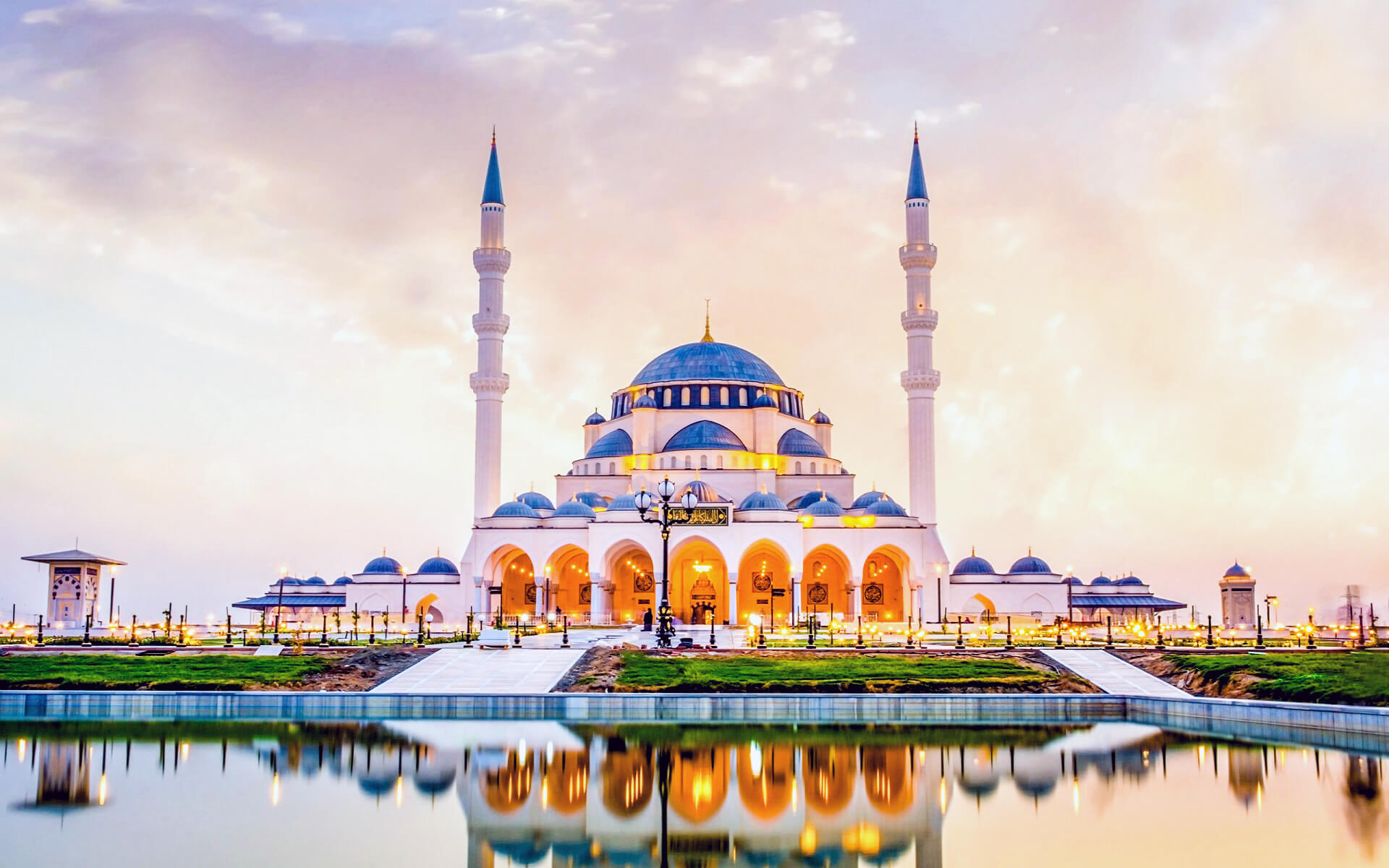SQUARE ROLLA
Rolla Square, named for the enormous Rolla – Banyan Tree – that used to stand in the square (and inspired the sculpture now in the park’s center), is a favorite weekend destination for employees.
SHARJAH AL HISN
Sharjah Fort was destroyed in the 1970s, but it was restored and is now a museum.
ROUNDABOUT ‘SMILE YOU’RE IN SHARJAH’
The flowery cry to cheer up inscribed on the roundabout, which is located between the Blue Souq and the Fish Market, near Union Bank, has given the roundabout its name.
BLUE SOUQ
The Souq Al Markazi, or Blue Souq, is a famous tourist site that includes a gold souq, a clothes souq, and antiques and jewelry stores on the first level.
FORT MAHATTAH
The fort was constructed to shelter passengers on the Imperial Airways Eastern Empire route and served as Sharjah Airport until 1977. It is currently a museum of aviation.
DISTRICT OF HERITAGE
The Heart of Sharjah is home to various galleries and museums, including the attractive historical museum, which provides an excellent glimpse into ancient cultural practices. The historic Souk Al Arsa, a covered souk with a variety of products for sale including antiques, is also located in the region, as is the office of the Sharjah Centre for Cultural Communication, where you can acquire information about Sharjah attractions.
MUSEUM OF SHARJAH HERITAGE
The Sharjah Heritage Museum is located near the Bait Al Naboodah, and across from Soouq al-Arsah. This is a lovely two-story family home with an intriguing architectural style. It is designed around a shaded courtyard and is devoted to the restoration of a family life many years ago. There are several rooms with exhibits of classic furniture as well as household things. There is also a selection of children’s costumes, games, and jewelry.
NATIONAL PARK OF SHARJAH
Sharjah National Park has roughly 630 thousand square feet of land.
AQUARIUM OF SHARJAH
Sharjah Aquarium, located in Al Layyeh, offers approximately 250 species to observe, ranging from delicate seahorses to the tiniest clown fish, reef sharks, rays, and moray eels. Visitors may immerse themselves in the colorful, varied, and rich underwater environment, which is home to a variety of aquatic life.
ISLAND OF AL NOOR
Al Noor Island is 45,470 square meters in size and is situated in the Khalid Lagoon. The ‘OVO’ and ‘Torus’ displays are among the art and light works included in the destination project.
ARABIAN WILDLIFE RESOURCE CENTER
The Arabian Wildlife Center is the only zoo in Arabia, and it houses a variety of animals native to the Arabian Peninsula. It was founded in 1999 and now houses over 100 different animal species. This facility is at a handy position, near to Sharjah International Airport. Despite the fact that much of Arabia is hot and dry, a number of mammal species have adapted to these circumstances.


